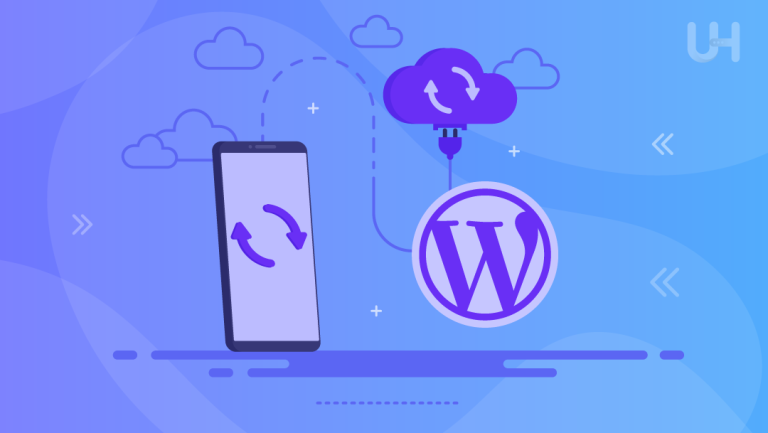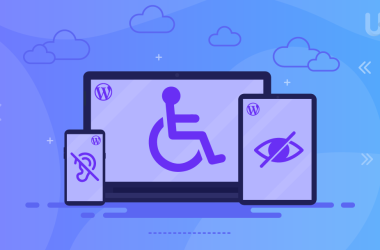Are you wondering if you have the right WordPress web Hosting for your business? If so, keep reading! But first, did you know that WordPress powers over 43% of all websites? That makes it the world’s most popular content management system (CMS) for bloggers, business owners, and everyone in between. With this in mind, hosting the right hosting provider is one of the best things you can do to ensure the long-term success of your business.
Reliable hosting ensures that your site is fast, secure, and able to handle influxes of traffic without crashing. If you’re using a poor hosting provider, I can almost guarantee that you’re going to run into some problems. These issues can disrupt the user experience, impact search engine rankings, and much more. Ultimately, this will damage your brand reputation and have a noticeable impact on sales.
In this blog, we will discuss six signs that it may be time to switch your WordPress hosting provider. Additionally, we’ll share a few actionable strategies you should consider if you’re thinking about finding a new web host.
Your Site Takes a While to Load
One of the most obvious signs that it’s time to switch hosting providers is slow loading times.
People are not likely to stick around if a single page takes ages to load. They’ll likely look elsewhere for another site that has similar content or, worse, a similar product.
The bottom line is if a website takes any longer than three seconds to load, the majority of users will abandon it.
More alarmingly, if your website takes 10 seconds to load, users are 123% more likely to bounce – which is when a visitor leaves after viewing one page. Even a one-second delay can reduce your site’s conversions by up to 7%.
Shocking, right?
You should also know that if your site runs slow, it will for sure impact your SEO strategy. Google has made it clear that fast-loading sites are more likely to make it to the top of the results.
To measure and benchmark your site’s speed, tools like Google’s PageSpeed Insights and IsItWP’s Speed Test can help you develop a baseline speed and figure out ways to improve before you make the switch.
If your site consistently takes a while to load, it’s time to look for a new WordPress web hosting provider that focuses on speed.
You Experience Frequent Downtime
Website downtime, as the name implies, occurs when your website is unavailable or inaccessible to visitors. Even brief windows of downtime can have a serious impact on your business.
We found that downtime costs businesses anywhere from $137 to $427 per minute, depending on the size and product catalog. If your site is going down frequently, you’re losing out on entirely too much money.
Beyond the financial costs, frequent downtime can damage your brand’s reputation. If people keep visiting your site only to be greeted with an error message, there’s a very slim chance they’ll return in the future.
In worst-case scenarios, they could turn to competitors who offer more reliable experiences.
When evaluating hosting providers, it’s important to understand the average expected uptime. In our experience, the industry’s gold standard is 99.9% uptime. This works out to less than an hour of downtime per month.
If your current hosting provider can’t meet this, it may be time to move on.
You’re Not Impressed with Customer Support
Did you know that 67% of shoppers say a poor customer service experience is the main reason they stop engaging with a business?
When investing in something as crucial to your success as a WordPress hosting company, you need to make sure they offer top-notch customer support. Otherwise, you may find yourself in trouble when a technical issue pops up that’s out of your expertise.
You’re going to want to turn to someone who knows what they’re talking about and can quickly solve your problems.
Unfortunately, not all hosting providers offer the level of customer support required to solve problems quickly and effectively.
With that in mind, here are some signs that you’re not getting the best support possible:
- You experience long wait times, even when it’s a simple question.
- The agents say things to you, specifically around WordPress or your hosting that you know are incorrect. In a word, inexperienced.
- There are unresolved problems or a pattern of recurring issues.
- You consistently run into rude or unprofessional agents.
If any of this stuff sounds familiar, it might be time to switch to a provider that puts its customers first. We’d suggest looking for a hosting company with 24/7 omnichannel customer support, ideally with agents who specialize in WordPress.
You Need to Scale Up
As your business grows, so will your website’s traffic and resource needs.
Your current hosting plan might have worked well when your site was smaller, but if your website experiences seasonal traffic spikes, viral content, or simply increasing visitor numbers, you’ll need a hosting plan that can scale alongside your business.
Signs that your current hosting plan can’t handle your growth include:
- Slow performance during traffic peaks
- Frequent downtime during high-traffic periods
- Limited bandwidth or storage capacity
If your site is revenue-driven, scalability is crucial to your long-term success since performance issues during critical times (such as product launches or sales) can lead to missed opportunities.
You’ll for sure want to invest in a hosting provider that can grow with you instead of holding you back.
You’re Missing Key Features

Every hosting provider is a little bit different, so you’ll want to figure out what features you need to run your site. Some come with features that drastically improve your site’s performance and security and make running a website super easy and convenient.
Others leave a lot to be desired. These companies often lack even the basic tools you need to manage your WordPress website.
Here are a few features you should look for, regardless of which host you choose:
- Automatic backups: Aside from manual website backups, having a host with automatic backups can be a big help. You never know when you’ll need to restore your site. If your hosting provider doesn’t offer this, you risk losing important data.
- Staging environments: Staging allows you to test different things on your site without impacting the live version. In our experience, this is especially important for development workflows.
- SSL certificates: SSL certificates are a must-have for site security. If your hosting provider doesn’t offer an SSL, your site may not be secure, which can turn people away and impact your position in the SERPs.
If your current host doesn’t have any of these features, it’s worth looking into providers that specialize in WordPress hosting and offer these features as part of their packages.
You Find a Better Deal
There are plenty of hosting companies to choose from. We bet that there’s someone out there offering you a cheaper price than what you’re paying now.
So, even if you’re not experiencing issues with your current provider, it’s worth reviewing your hosting plan every so often to see if there’s a better deal available.
We suggest looking beyond the price and taking the other factors we’ve discussed today, like performance, customer support, and features, into the equation so you’re getting an optimized hosting solution that meets all of your needs.
Switching to a more affordable plan will result in long-term savings, improved site performance, and, ultimately, a better experience for both you and your users.
How to Prepare for the Switch
Now, here are a few things you can do if you’re prepared to switch hosting companies but don’t know where to start:
- Explore Your Options: Research and compare the pros and cons of different hosting providers. We suggest reading user reviews and exploring features so you can be sure they meet your needs.
- Talk to Your Existing Provider: Before making the switch, you may want to consider reaching out to your hosting provider. They may offer to resolve the issues or match a competitor’s offer, which could save you the trouble of switching.
- Backup Your Data: Make sure to back up your entire website, including databases, files, and media. This ensures that if anything goes wrong during the transition, you won’t lose valuable data.
- Let Your Audience Know: If your site will experience downtime during the switch, let your audience know ahead of time. This simple gesture will help prevent confusion.
- Make the Switch: Once you’ve chosen a new host and backed up your data, go ahead and make the switch. Many hosting providers offer migration services to make this process easier.
- Test Before Going Live: After the switch, test your website so you know everything is functioning properly. Check for broken links, missing content, and performance issues before announcing that your site is live.
Final Thoughts
Upgrading or switching your WordPress hosting provider is a normal part of managing a website.
If you’re dealing with slow speeds, frequent downtime, poor customer support, or missing features, these signs indicate that it may be time for a change. By following the steps outlined above, you can ensure a smooth transition and set your site up for long-term success.
Don’t settle for less when it comes to your website hosting. The right provider can make all the difference in how well your site performs, which will determine your success.
At Ultahost, we offer tailored WordPress hosting solutions that cater to your specific needs, ensuring your website runs smoothly and efficiently. With our expert support and powerful features, you can focus on what truly matters—growing your online presence. Ready to make the switch? Explore our WordPress hosting options today here.










